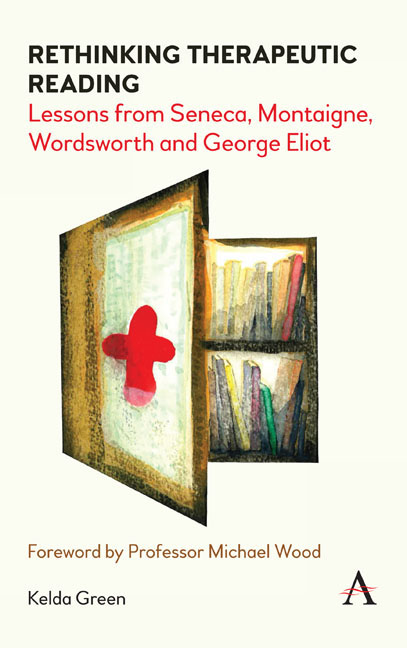2 - Therapy and the Essay: Montaigne, after Seneca
Published online by Cambridge University Press: 16 July 2020
Summary
A Case History
The French aristocrat Michel de Montaigne (1533– 1592) devoted himself to public service as a magistrate, counsellor and Mayor of Bordeaux during the period of political and religious upheaval in France marked by the civil war that raged intermittently from 1562 to 1598. In 1571 – at the age of 38 – Montaigne retired from public life, set up a library in the tower of his chateaux, and focused on studying ancient philosophy and writing a book of essays. Montaigne was a particularly keen student of Seneca and was described by his contemporary, Estienne Pasquier as ‘another Seneca in our language’. The first half of this chapter will examine Montaigne as a reader of Seneca, considering how he put the principles of Stoicism into practice, testing them against the reality of his own experiences and adapting them to better serve and suit himself. As he wrote in the essay ‘On Some Lines of Virgil’, ‘My philosophy lies in action.’ The second half of the chapter examines whether Montaigne's Essays offer up a particular model of self-help, concluding that they do contain a valuable therapeutic model, but one which is distinctly different from conventional modern self-help therapy.
Montaigne's self-enforced retirement followed the example of Seneca who had himself retired from his public role as advisor to the Roman Emperor Nero towards the end of his life and who, in retirement, had written his series of letters to Lucilius. In these epistles, Seneca had advised his friend to follow his lead and ‘withdraw into yourself, as far as you can’. As Montaigne retreated to his library he was trying to put Seneca's advice into practice: ‘It seemed to me then that the greatest favour I could do for my mind was to leave it in total idleness, caring for itself, concerned only with itself, calmly thinking of itself ‘.’ However, in reality he found himself struggling to achieve anything close to the Stoic ideal of tranquillity, as his mind immediately ‘bolted off like a runaway horse’. The discordancy between the Stoic theory of retirement and Montaigne's own lived experience was an early indication for him that philosophy was something that had to be made and moulded afresh by each individual through the act of living. It was mental and not public action to which his retirement was dedicated.
- Type
- Chapter
- Information
- Rethinking Therapeutic ReadingLessons from Seneca, Montaigne, Wordsworth and George Eliot, pp. 27 - 40Publisher: Anthem PressPrint publication year: 2020



